Guitar Case Essentials: A Survival Guide
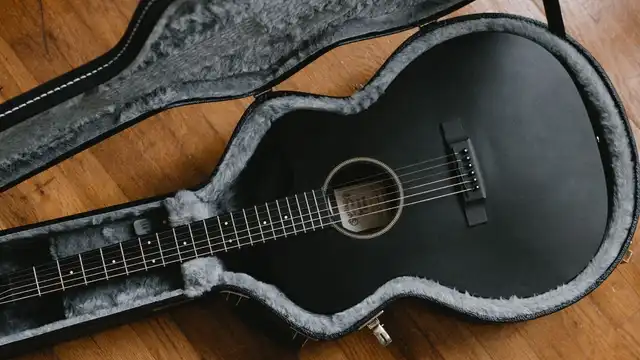

Little needs to be said about the virtues of being prepared—of planning for the unexpected—for many of the greatest minds have extolled these values throughout the course of history.
To paraphrase a few of these prominent figures:
“Give me six hours to prepare for a gig and I’ll spend the first four sharpening my axe.” - Abraham Lincoln
“Face-melting solos are what happen when opportunity meets planning.” - Thomas Edison
“A guitarist who does not plan long ahead will find trouble in the studio.” - Confucius
These late, great intellectuals may not have been talking specifically about being a well-packed guitarist, but the principle is the same. No one wants to get caught in the middle of a gig with a broken G string and no replacement. At the least, it’s inconvenient. At worst, it’s unprofessional, and not to mention pretty dorky.
Just like you need to be prepared for that one transition your drummer always seems to count in a beat too early, you should be prepared with the right gear in your case whenever you’re out with your axe.
Though the specific nicknacks each musician feels they’ll need to carry is gonna be a little different from player to player, this list of the common essentials—as well as a few odds and ends you might not have considered—is here to give you a good place to begin piecing together your guitar gear travel kit.

Too Bulky to Mention
There are a couple things you probably don’t need to be told about that may or may not live inside your case. Oftentimes, the show can’t go on without them, so before you leave home make sure you’ve got:
Cables and Power Cords
Unless you travel with a handy-dandy road tech, you’re probably responsible for your own cords and cables. Mine usually stay outside the case, but wherever you keep em, be sure they make it to the gig.
Guitar Strap
You might keep yours locked to your axe—in which case you’d have to be really forgetful to leave this behind—but if not, don’t let your strap slip your mind. Unless you're an old bluesman or playing in an orchestra pit, it's kinda weird to be sitting in a chair while the rest of the band is standing up.
The Obvious Extras

Strings
You saw this one coming, didn’t you?
Yeah, of course, you need to carry some extra guitar strings, whether you’re headed to Carnegie Hall or to your bassist’s garage. A guitar without strings is just a block of wood, after all.
I recommend carrying two full sets, and do so with personal conviction.
I’ll spare you the details of a pretty anticlimactic tale, but it all goes back to one fateful open mic many years ago. Totally unprepared with no extra strings on hand, I broke not just my own high E string, but also that of the kind and trusting guitarist who so generously loaned me his instrument afterward.
It really goes without saying—bring some extra strings.
Picks
Okay, so if you’re a classically trained fingerstyle player, this one may not apply—but even then, how kind you would be to have extra picks on hand for the guitarists-in-need you might encounter on your way.
If you do use picks, whether of the finger and thumb variety or the standard tear-drop, you know how easy those suckers are to lose. I recommend carrying a few extras of your favorite guitar picks plus a small variety of “emergency picks” in case you or a bandmate should suddenly find yourself empty-handed.
Plus, to help you hang onto them for longer before they journey to the mystical land of lost plectrums, keep your picks in a container. Get yourself a mint tin, a plastic baggy, a coin purse—anything, really—to hold your extra picks in, and you’ll find they wander off a lot less frequently.

Musical Must-Haves
Tuner
This one simple trick can save you and your bandmates a lot of frustration:
Use a tuner.
(and no, your phone doesn’t count)
I’m not saying you can’t do a fine enough job by ear, but trying to get your drummer to stop practicing his paradiddles while you’re making last-minute tuning adjustments is—at least in my experience—no easy task.
Unless you keep a tuner in your pedalboard, carry a simple, inexpensive clip-on tuner so you can stay pitch perfect no matter how raucous the rehearsal.
Capo and Specialty Accessories
Your setlist might actually never call for these little extras. But they’re small enough to fit in even the tightest gig bag storage pockets and open up a lot of opportunity for experimenting with your sound and style, so I always like to keep at least one or two of these on me:
Capo
So your vocalist went a little too hard at yesterday’s gig and wants to take things down a notch tonight? Keep key changes simple with a capo in your case. How about some acoustic guitar strings to go along with it?
Slide
Admittedly, I only use my slide every once in a red moon at a particular crossroads in Louisiana, but it still stays tucked inside my case wherever I go.
EBow
Some folks love these, others could care less, but hey, if the Ebow’s your thing, make sure you don’t forget it at home.

Tools of the Trade
Multi-tool
Here’s where my redneck roots start to show a little bit…
A lot of people will recommend that you keep a string-cutter at the ready, which—while not bad advice—I consider a bit limiting.
Rather than that hyper-specific tool, I suggest carrying a small, cheap multitool instead. I mean the kind that packs a pair of pliers alongside knives, screwdrivers, bottle and can openers, files, and more into a neatly-folding rectangle no bulkier than a string tool.
There are a thousand and one things I could think to use my multitool for on any given day, and about 50 of them are music-related. You can cut and bend strings, tighten loose jacks, pull bridge pins, replace your tuning machines—the list goes on and on.
My only caution with the multitool: pack it in your checked bag if you take your guitar as a carry-on to avoid any mix-ups with airport security.
String Winder
One thing a multitool lacks is the time-saving technology of a string winder. These lightweight devices can turn string changes from a chore to really nothing at all.
Hex Keys and Other Hand Tools
If you’re going to be on the road for any extended amount of time, it’s smart to have the basic tools needed for simple maintenance like adjusting your guitar’s action or restringing a locking tremolo system.
The specific sizes of Allen keys and wrenches you might need will vary widely from rig to rig. So, get acquainted with the tools your setup calls for and keep them handy in case you need to do some tech work between tour stops. To get you started, Premier Guitar has a great breakdown of the tools common to different guitar models.
The Often Forgotten
These useful items are among those most frequently left behind but are mainstays in the prepared guitarist’s travel case.
Microfiber Cloth
To quote Douglas Adams (without all the alien stuff):
A towel is about the most massively useful thing a [guitarist] can have. Partly it has great practical value. You can wrap it around you for warmth... You can sleep under it beneath the stars ... Wet it for use in hand-to-hand-combat; wrap it round your head to ward off noxious fumes... You can wave your towel in emergencies as a distress signal…”
...and, of course, wipe the sweat and grime off your guitar with it if it still seems to be clean enough.
In all seriousness, wiping down your strings before and after each performance can go a long way in extending their lifespan.
A good microfiber cloth is, in my opinion, all you really need to keep your strings clean and your finish flawless.
Cleaners and Conditioners
For the most part, I’m not big on waxes and polishes, but if this is part of your routine maintenance, get yourself a travel-size set of your preferred products to keep your axe shining on the go.
I do, however, like to pamper my fingerboard once or twice a year with a little extra lemon oil and spruce my strings up with some conditioner.
You can get both a microfiber cleaning cloth and our natural, fretboard-safe string conditioner here.
Paper and Pencil
Yeah, you can always use your phone for jotting down song ideas, but what are you gonna do when you’re asked for an autograph?
I might be a little old-fashioned with my affinity for handwritten lyrics, but I always like to keep a small writing pad and pencil in my case.
Batteries
If you play with pedals or active pickups, keep at least one or two extra batteries in your bag.
Humidifier
There’s debate as to whether or not every guitar needs to be humidified, but erring on the side of precaution, I usually advocate for the use of case humidifiers, particularly for acoustic, semi-hollow, or hollow-bodied guitars.
To keep your guitar happy and healthy, house it with a humidifier.
Earplugs
Last, but definitely not least, be sure to bring earplugs!
In one moment of lawncare carelessness, I gave myself permanent hearing damage while using an extremely noisy weedeater with no hearing protection. Years later, I’m still a fairly young human but now have to regretfully crank my head to one side while exclaiming “Heh?!” more often than I’d like to admit.
For the sake of the only pair of ears you’ll ever own, get yourself some good earplugs made for musicians. These specialized plugs are designed to reduce the overall levels of noise exposure while maintaining the natural frequency range of the sounds they’re suppressing.
Sound complicated? Wait till you hear about active attenuating earbuds... You can read all about protecting your hearing in this Sweetwater article.
Basically, there are several options of earplugs you can get these days that give you high-fidelity noise reduction. That means things get quieter but still sound good.
If you’ll be playing loud (and hopefully you will—ROCK ON!), a pair of quality noise-reducing earbuds is an absolute necessity in your day-to-day rig rundown.
The Wrap-Up
Now look, I’m not saying every single guitarist needs to have each of these things in their case at all times, but I kind of am.
If you’ve got the storage space, these are all really useful items to have with you when you start playing out. Some of them—spare picks, extra strings, a tuner—will prove their utility frequently and without fail. Others—like the Ebow, tools, and batteries—have their time and place, but will surely benefit you or another at some point in your musical career.
And heck, if they don’t, no harm done along the way.
So start out with those accessories most relevant to you now, then steadily bring more into the mix as you need them. In time, you’ll find you’re ready to deal with any offbeat discord that comes your way.
Other Posts you may like

Guitar Strings Order: How the Guitar is Tuned and Why
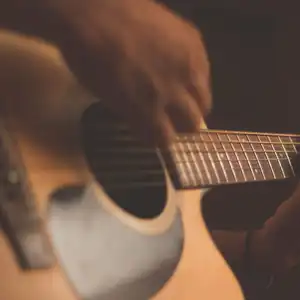
Best Acoustic Guitar Strings for Beginners

Two Handed Tapping: Our Top 8 Tappers of All Time
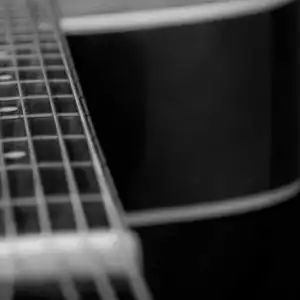
Which Guitar Strings Wear Your Fret Wire Down More?
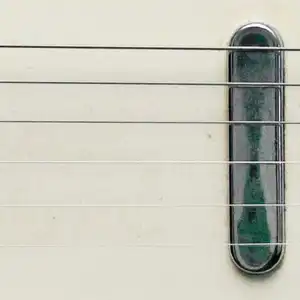
What is Nashville Tuning? Its History, Best Guitar Strings & Uses
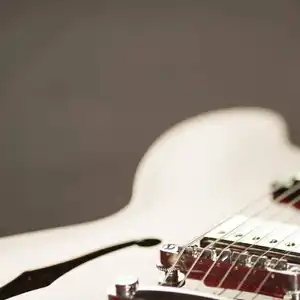
Guitar Scale Length Explained: String Tension & Playability
0 Responses
Leave a Reply
Your email address will not be published. Required fields are marked *




